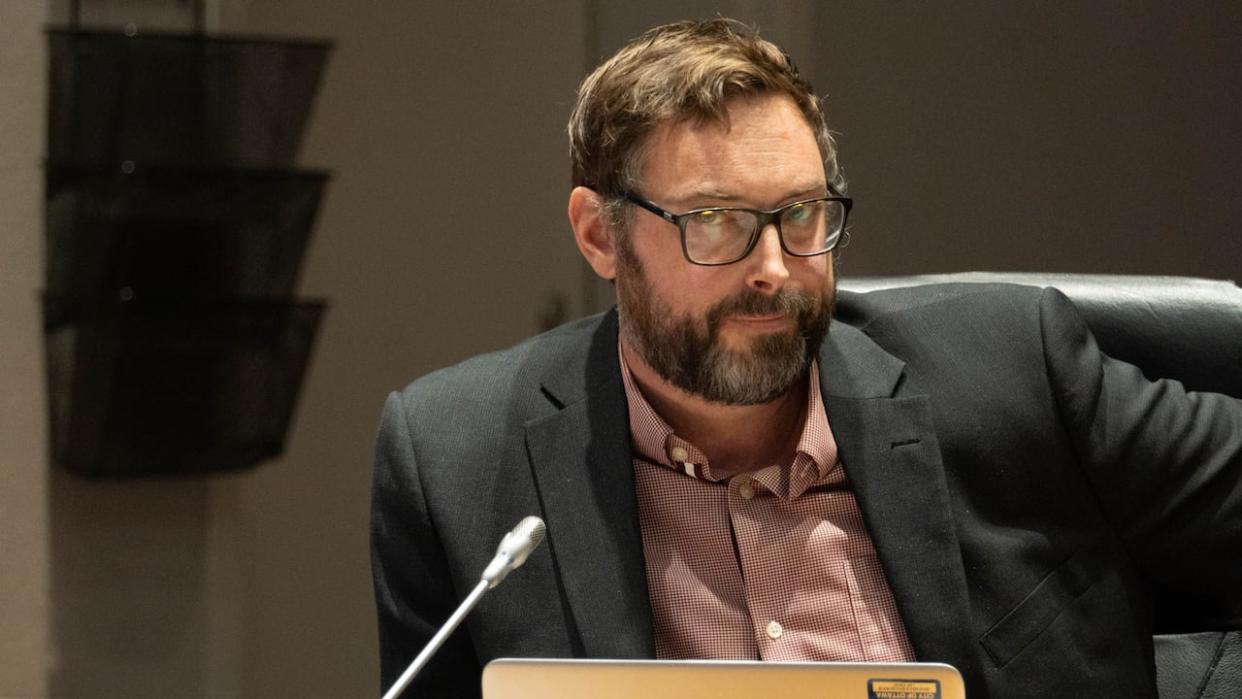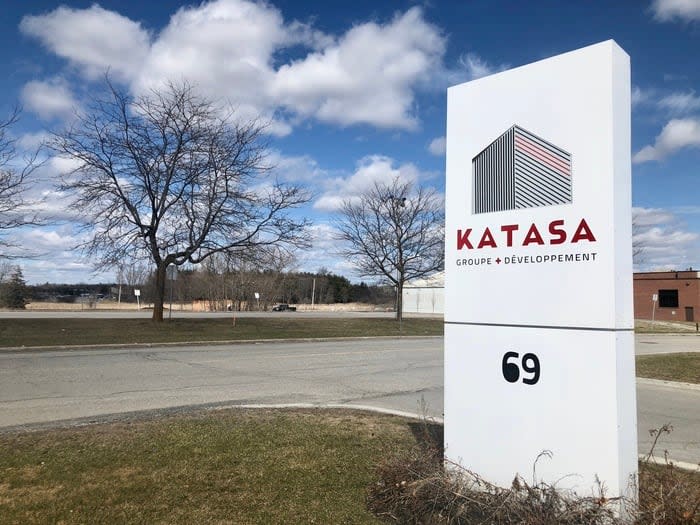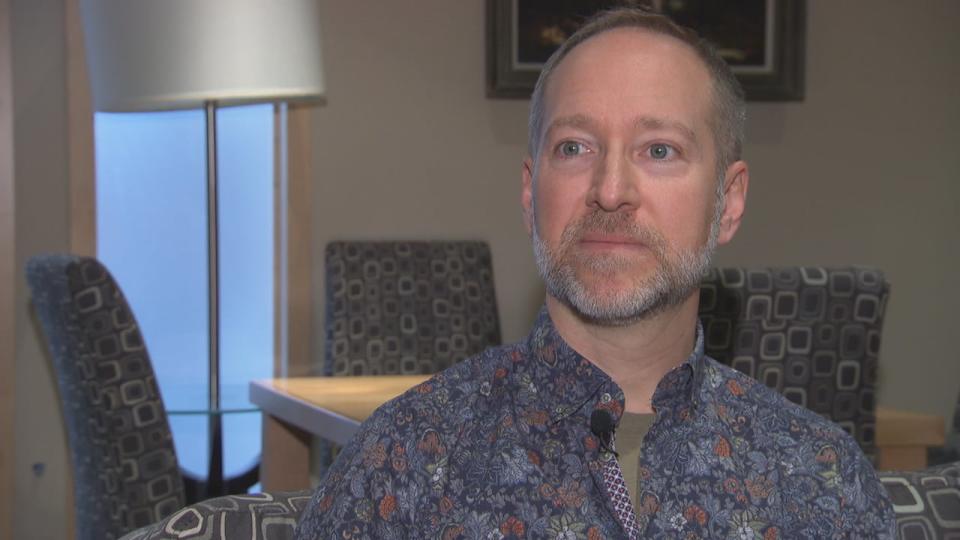Developer cash scandal inflames council divisions — and there may be no going back

What do you get when you combine a local developer, an Ottawa city councillor and $300,000 in cold, hard cash?
A political maelstrom with the power to break the calm that this council has sought to foster.
In the same meeting where Mayor Mark Sutcliffe lauded the "professional and respectful tone" of this term — a stark contrast to his predecessor's fractious legacy — councillors threw down on an issue so explosive it seems incredulous that a veteran politician like Coun. Shawn Menard would not have seen it coming.
The relationship between developers and councillors is a perennial source of consternation, whether through a charity golf tournament or the stickyissue ofcampaigndonations.
Yes, these "voluntary contributions" are their own thing. But they deserve the same degree of scrutiny.
Donations like the one pledged — and subsequently withdrawn — by Gatineau-based Groupe Katasa to Capital ward are either a necessary community protection or an ethics breach, depending on where you stand.
The debate has swung both ways on this one, with the money being alternately dubbed "extortative" and a "windfall" — and that's by the same councillor.
Councillors and staff agree these donations are not new — city staff cite seven cases since 2018, though it's unclear exactly what type of contributions those entailed — and they're not against the rules.
Because there are no rules.

Groupe Katasa offered $100,000 for traffic calming and $200,000 for affordable housing in Capital ward, but pulled out of the deal before any agreement was signed. (Yasmine Mehdi/Radio-Canada)
Where politics meets policy
The colourful council debate on this issue kicked off with Kanata South Coun. Allan Hubley calling the donation "a bag of money being put on the table."
Barrhaven West Coun. David Hill likewise expressed concern, poking at the deal's "opaqueness" and the "very dangerous precedent" it would set for negotiations with developers in the future.
Then Coun. Matt Luloff raised the heat: "I have it on good authority that this developer felt pressured by this councillor to make this contribution," he claimed, labelling the contribution a "$300,000 slush fund."
An insinuation? Or an accusation?
Luloff has had chances to clarify those statements, but has opted not to take them.
"What happens at the council table stays there for me," he told CBC. "When the meeting is over, I move on."
But the council chamber is not Las Vegas. And those words continue to resound through the social media echo chambers, spawning numerous hot takes.
The political noise is now so dense the issue at the heart of the matter could be drowned out.
It's about time, says former councillor
Stéphane Émard-Chabot feels it's "about time" the practice was thoroughly examined.
The municipal lawyer and former city councillor said this kind of informal negotiation has been going on "for some time," though he doesn't remember it existing when he represented a ward in pre-amalgamation Ottawa.
You're getting awfully close to corruption. - Stéphane Émard-Chabot, lawyer and former councillor
"The biggest problem is what this looks like," Émard-Chabot said. "When you get into informal agreements that are arbitrary and say, 'If you give me a couple hundred thousand dollars so that I can build a swimming pool in my neighborhood, then maybe I'll vote for it,' you're getting into horse trading. You're getting awfully close to corruption."
Councillors have already asked staff to bring them guidelines by the end of this year, though Sutcliffe later suggested the practice should be abolished altogether.
Émard-Chabot also thinks the transparency issue trumps any individual benefits — and there's no use spinning it.
"There is no nice wrapping paper in which we can put this issue and make it look good," he said. "I just don't see it."
Long-standing divisions
That doesn't mean there aren't important debates to be had.
Chief among them is what Émard-Chabot calls the "exacerbating inequities between neighbourhoods" — a general unfairness in the distribution of municipal services.
The urban-rural divide resurfaces.
That vote split has affected many of this term's most contentious debates, from the two-item garbage limit debate that stalemated at committee, to a decision on tax breaks for developing on polluted land so confusing that legal staff haven't been able to fully make sense of it.
Councillors representing the wards most affected by disruptive infill development and subsequent gentrification have vehemently defended these voluntary contributions, saying current development charges fail to meet their needs.
Émard-Chabot understands that, but he doesn't believe the argument trumps an insurmountable ethical problem.
This is not the start of a slippery slope, he said. It's the end.
"When you have to pay the city with a private agreement based on an arbitrary amount that has no calculation, no basis in technical requirements or law or anything else, you feel you need to do that to get a vote. And that's a problem."

University of Ottawa municipal law professor and former city councillor Stéphane Émard-Chabot believes it's time to end the practice of accepting voluntary contributions from developers. (CBC)
No one's integrity is for sale
There's another difference between the yeas and nays around the council table.
Many of those chastising Menard's negotiations accepted donations from developers during their campaigns, a practice that is clearly legal even if some consider it unethical.
Sutcliffe was drawn to the centre of that debate this week when, after he flipped his position to staunchly oppose these agreements, it was revealed that his campaign team accepted a $1,000 donation from one of the Groupe Katasa executives most closely involved in these negotiations, despite her address in Gatineau, Que.
The two issues may seem linked, though there's a danger in conflating them.
But there's a common premise at the heart of both: Can a councillor's integrity be bought?
Émard-Chabot doesn't think so. But he said that even when the money is not going directly into a councillor's pocket, these voluntary contributions provide a political win that can help with re-election.
"The second you cross that line into informal, ad hoc, arbitrary deals, you're opening the door and you're making yourself, as an elected official, completely vulnerable for that kind of attack," he said.
"And it makes no sense to me. Why would you subject yourself to questioning of your integrity when you have done nothing wrong?"

City staff have been called upon to draft guidelines for councillors who wish to negotiate these types of donations. They're expected to report back by the end of the year. (Michel Aspirot/CBC)
Regardless, the debate is not about Menard's character, which has been thoroughly defended by officials of all political stripes. This is about the donations themselves, and about how they look.
Councillors would do well to remember that when mud is flung in all directions, no one walks away clean.


